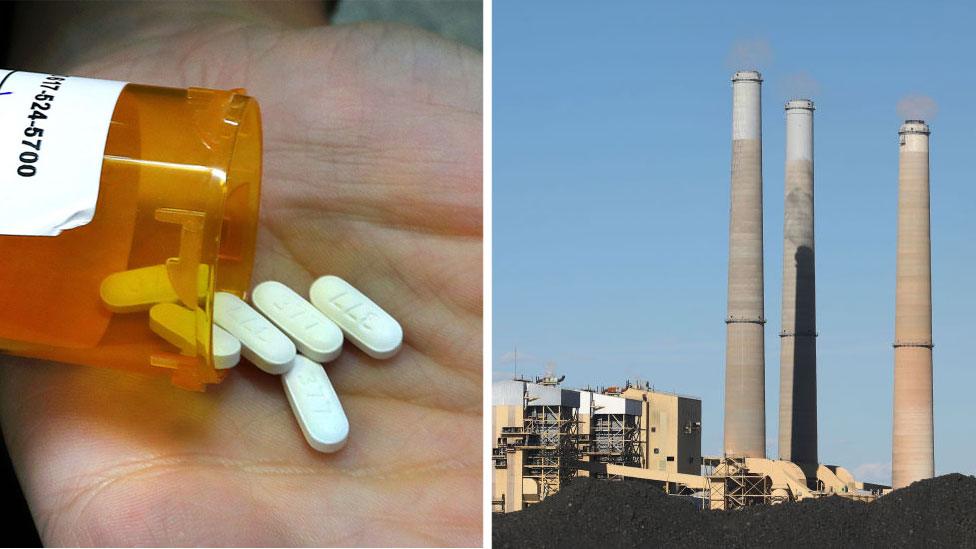Trump impeachment trial: Your questions answered
- Published
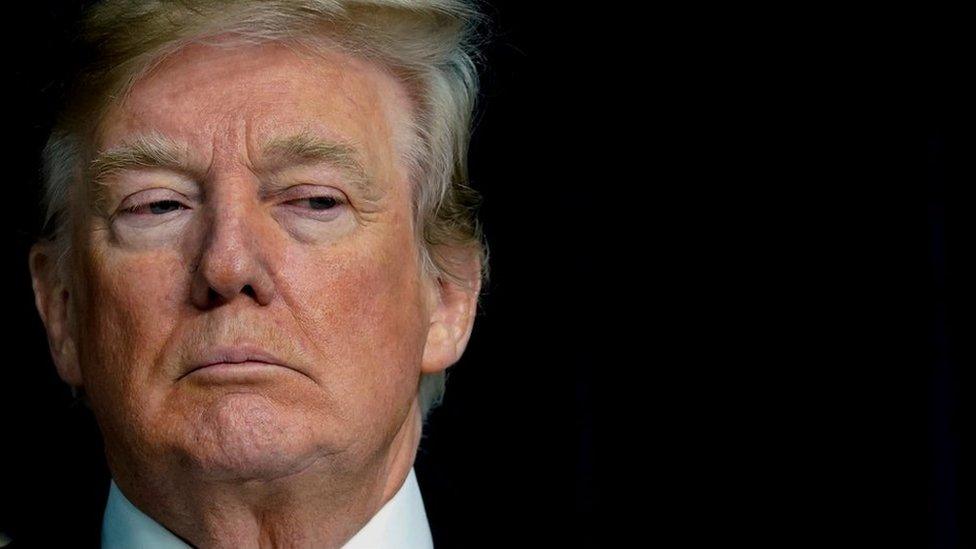
President Trump is accused of abuse of power and obstruction of Congress
The legal team representing President Donald Trump at his impeachment trial has wrapped up its opening arguments.
They followed three days of arguments from the Democratic congressmen serving as prosecutors, who accuse the president of abusing his power and obstructing Congress.
Our readers asked some questions and I've answered a selection here.
Drawing on the Watergate scandal evidence against Nixon, how does Trump's impeachment compare in terms of what he is alleged to have done? - Derek Hammond
In 1974, the Judiciary Committee of the US House approved three articles of impeachment against then-President Richard Nixon, accusing him of obstruction of justice, abuse of presidential power and contempt of Congress.
These arose from the president's attempts to cover-up his administration's involvement in a botched break-in to the Democratic National Committee headquarters in the Watergate office complex, although the abuse of power charge also included improperly accessing confidential tax records and ordering wiretaps and tax audits of political opponents.
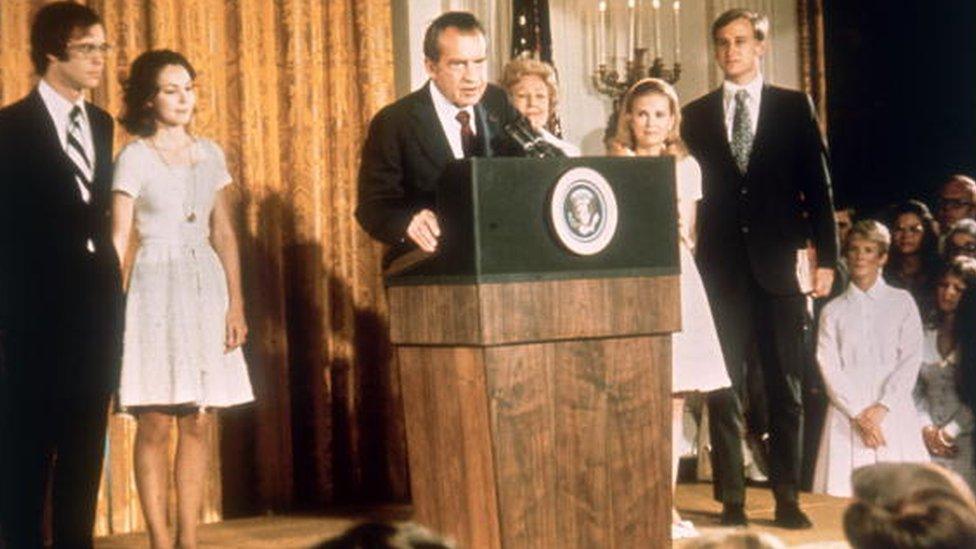
Richard Nixon at the White House with his family after his resignation as President on 9th August 1974.
Nixon resigned before the full House could vote to impeach him.
While not exactly tracking the language of the Nixon accusations, Donald Trump's impeachment articles are similar, alleging abuse of presidential power and obstruction of Congress. In Trump's case, the misconduct, according to Democrats, involved his attempts to pressure Ukraine to announce investigations that would benefit him politically and block Congress's investigation into the matter.
Republicans have tried to draw a distinction between the two impeachment investigations, arguing that Nixon's arose from an underlying crime - the break-in - while Trump's was an exercise of legal presidential power. Democrats, and their legal experts, have said a technical violation of a criminal statute is not required for impeachment and removal.
A beginner's guide to impeachment and Trump
Why did the Democrats not go to court to get the witnesses to testify? - David Burns
This is a frequent Republican objection to the president's impeachment - that the Democrats rushed the process to finish before the end of 2019, instead of working harder to obtain documents and witness testimony being blocked by the White House.
Democrats say that if they had gone to court to fight out the administration's blanket order for all current and former officials not to co-operate with the House impeachment probe, the process could have dragged on for months, if not years. They cite the example of Don McGahn, the president's former White House counsel, whose testimony congressional Democrats sought regarding the administration's handling of the Robert Mueller Russia investigation.
The House subpoenaed McGahn last May and filed suit against the White House for refusing to allow his testimony in August. Three months later, a lower court ordered McGahn to comply with the subpoena, but that decision has been on hold pending an appeal to an intermediate circuit court. Even if the Democrats win again, the administration will almost certainly appeal to the Supreme Court, adding further delays.
Democrats say a similar situation would play itself out if they tried to subpoena former National Security Advisor John Bolton, for instance, or acting Chief of Staff Mick Mulvaney - both of whom could have information relevant to Trump's Ukraine actions.
Why will Democrats not allow Joe Biden's son to be questioned? - R N Francis
Democrats aren't the only ones hankering for witnesses. Republicans are warning that if their counterparts open up that Pandora's box, they'll insist on testimony from Hunter Biden, as well.
They view his work for the Ukrainian energy company Burisma to be irrelevant and simply an attempt by Republicans to raise unfounded doubts and suspicions about his father, presidential candidate Joe Biden.
What we know about Biden-Ukraine corruption claims
"What can Hunter Biden tell us about the president's obstruction of Congress?" Senate Democratic Minority Leader Chuck Schumer said on Tuesday. "Nothing, obviously."
Republicans counter that Democrats have said Trump had no valid reason to pressure Ukraine to investigate the Bidens - an argument they say is undermined if they can establish Hunter was engaged in corrupt activities.
What role does the Chief Justice play in these proceedings? - Malcolm MacLennan
According to the US Constitution, the chief justice's role is to "preside" over the impeachment trial. What that means in practice is determined by Senate rules and the precedent set by the two previous presidential impeachment trials.
When William Rehnquist presided over Bill Clinton's trial in 1999, his role was very limited - mostly issuing the oath to senators, gavelling proceedings to order and recess, and reading questions from the senators to the impeachment managers and the presidential defence team.
So far, Chief Justice John Roberts has followed the model set by the man he once clerked for. His only notable departure was when he admonished both sides in the trial to temper their rhetoric and refrain from language that is "not conducive to civil discourse" after a series of heated exchanges between the two legal teams early last Wednesday morning.
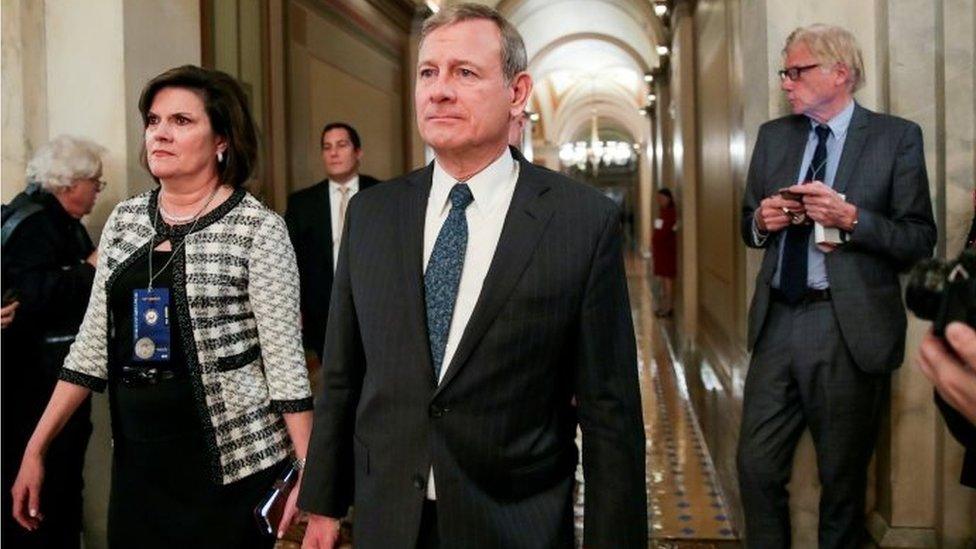
Chief Justice of the United States John Roberts leaves after presiding at the Senate impeachment trial of President Donald Trump
As the presiding officer, the chief justice is authorised to issue rulings on procedures and evidence during the trial, although his decisions are subject to reversal by the vote of a majority of the Senate.
In an opinion article published in the New York Times on Sunday, however, three legal experts suggested that Roberts' powers may be greater than many realise - and could impact upon the witness debate mentioned above. Citing Senate rules dating back to President Andrew Johnson's 1868 impeachment trial, they argue that the chief justice has the authority to issue subpoenas for testimony and documents at the request of one of the legal teams - and can only be overruled by a two-thirds vote of the Senate.
Does he have to be found guilty of one or both articles to be removed from office? - Declan
At some point, all the debate over witnesses and evidence will come to an end an it will be time to vote. When they do, the impeachment articles will be like silver bullets for werewolves -just one can kill a presidency.
The Senate votes on each article separately, and if any get 67 out of 100 votes in favour, the president is removed from office and a separate vote is held on whether to disqualify the now ex-president from all future elective office.
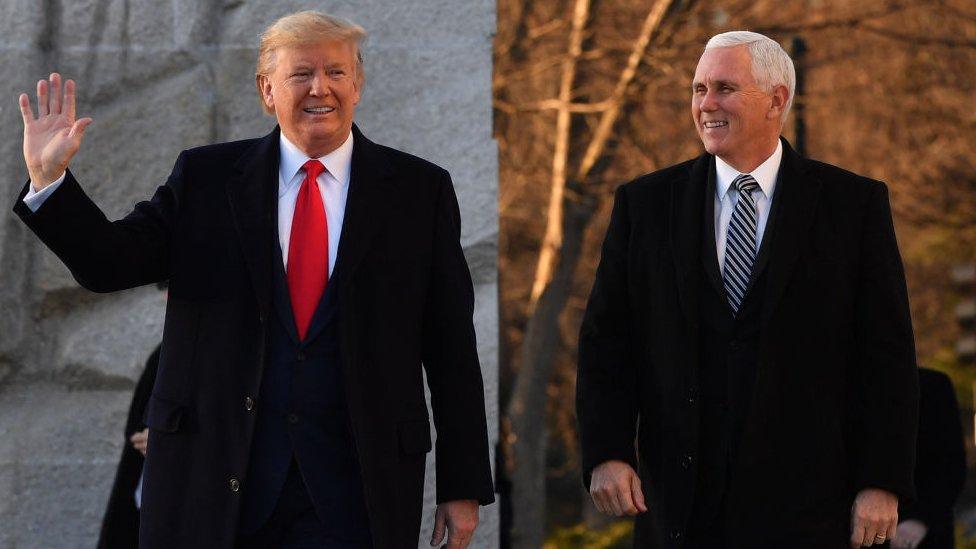
US President Donald Trump and US Vice President Mike Pence in Washington, DC
That raises the tantalising possibility of an impeached and removed president being allowed to subsequently run for, and win back, the presidency.
Sounds like the makings of a good political intrigue novel.
Why aren't the impeachment votes done anonymously? - Paul
If the trial vote goes like past presidential impeachments, there will be a roll call of all 100 senators, who will then render their judgement - "guilty" or "not guilty". It doesn't have to be that way, however.
Former Senator Jeff Flake suggested last autumn that if it were a secret ballot, enough Republican senators would vote against the president to remove him from office. The only thing keeping them in line, he said, was fear of recrimination from the president if they failed or his supporters if they succeeded.
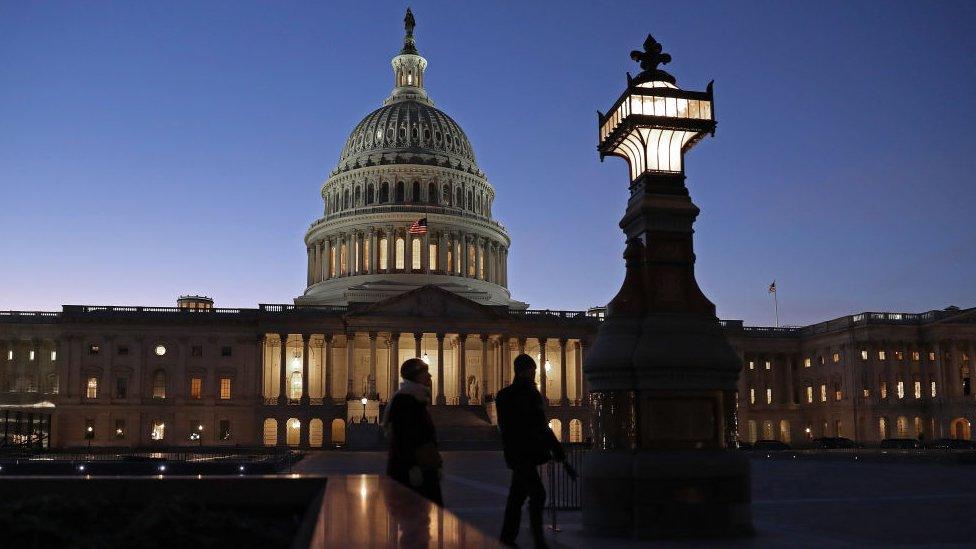
Senators are expected to vote on the rules for the impeachment trial, which is expected to last three to five weeks.
Conceivably, the Senate could vote to make the removal process a secret ballot - although there's a provision in the Constitution, the journal clause, that allows 20 or more senators to demand a recorded vote.
The political obstacles to a secret ballot seem like the greatest ones, however. Impeachment and removal was designed by the Constitution's founders to be a public act - which is why they put it in the hands of politicians to begin with. The public may not take too kindly to politicians voting to move that process behind closed doors.
Could Trump be prosecuted once out of office for alleged offences in office? - Howard Davies
Just because the Trump will probably be acquitted doesn't mean he's out of the woods for good. The general legal consensus is that while it's debatable whether a president can be prosecuted while in office, former presidents can be charged with criminal offences they committed while in office, assuming the statute of limitations has not expired.
Back during the Mueller Russia investigation, there was all sorts of speculation that the special counsel's office was preparing "sealed" indictments that would be waiting for the president once he no longer had the theoretical immunities of his office.
That talk has died down now, but back during the Watergate scandal the prospect of a post-presidential indictment was real enough to prompt Nixon's successor, Gerald Ford, to issue a blanket pardon for Nixon's actions as president in the name of national "healing".
Given that polls show the public's faith in US institutions and government has steadily declined since then, I'd say it's a mission not accomplished.


What questions do you have about Donald Trump's impeachment trial?
In some cases your question will be published, displaying your name, age and location as you provide it, unless you state otherwise. Your contact details will never be published. Please ensure you have read our terms & conditions and privacy policy.
Use this form to ask your question:
If you are reading this page and can't see the form you will need to visit the mobile version of the BBC website to submit your question or send them via email to YourQuestions@bbc.co.uk, external. Please include your name, age and location with any question you send in.
- Published19 May 2020
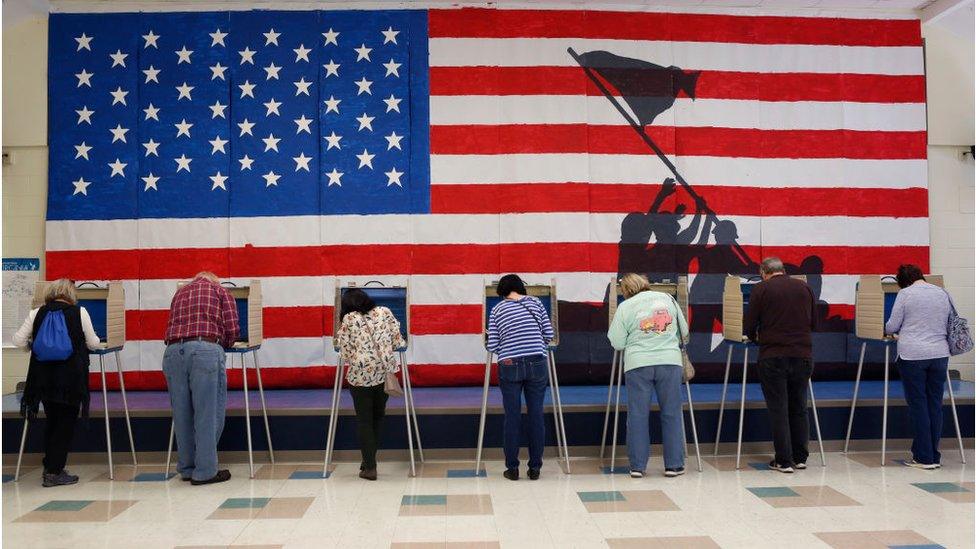
- Published9 December 2019
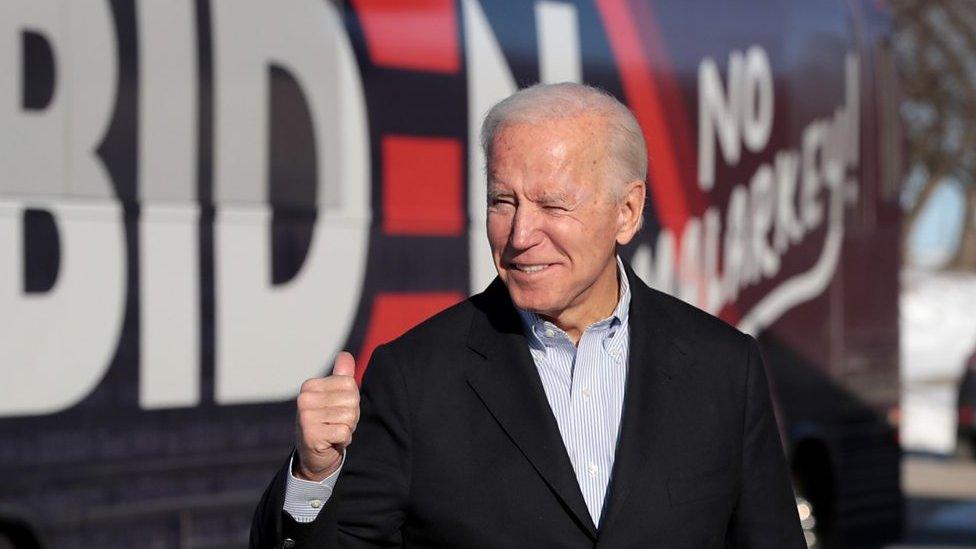
- Published2 March 2020

- Published17 January 2020
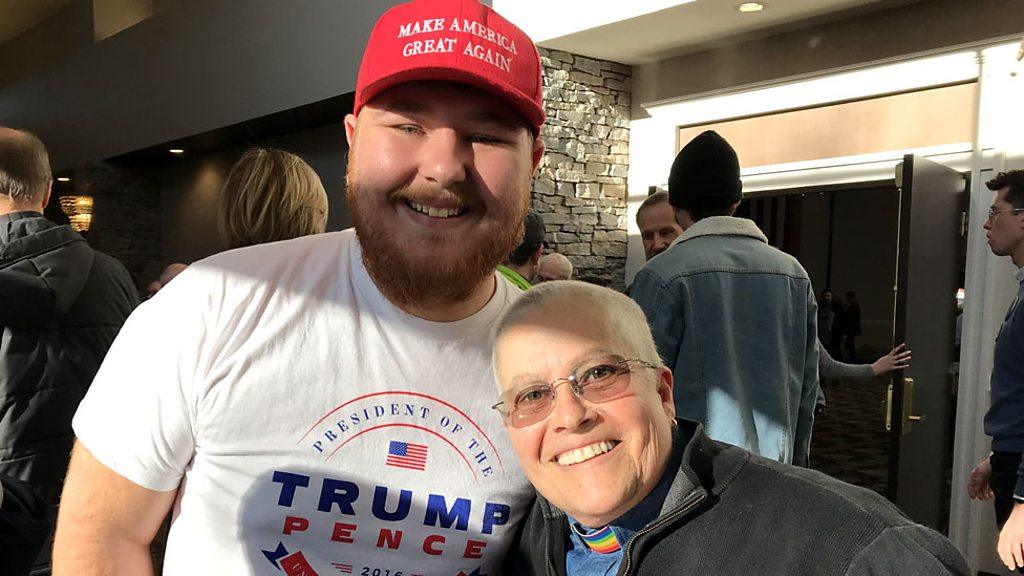
- Published4 February 2020
